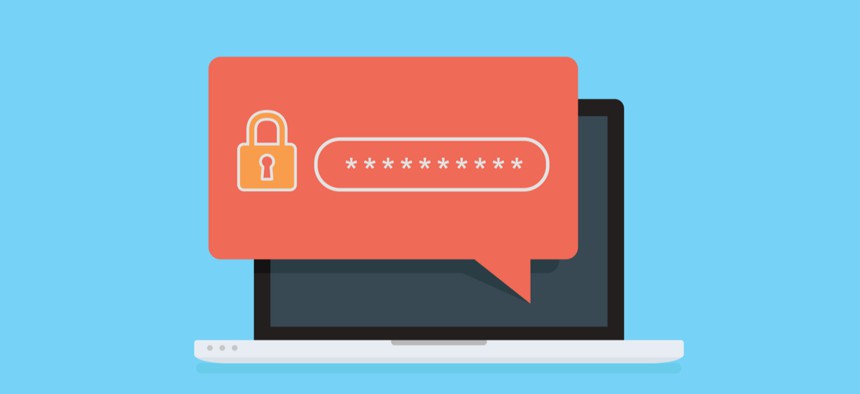GSA Is Hiring a Contractor Team to Work on Login.gov

doyata/Shutterstock.com
The single sign-on platform needs improved security, scalability and availability as the program pushes for broader use across government.
Since 2017, the team at 18F—part of the Technology Transformation Service in the General Services Administration—has offered a single sign-on platform available to all agencies: Login.gov. As the platform gains wider use through the federal government, TTS is looking for a team of contractors to support continued development and improve the user experience with the site.
Login.gov was launched in 2017 to function as a single credentialing portal for citizens and other users interacting with the government through agencies’ websites and apps. Rather than require users to create unique log-ins for every service, Login.gov would allow people to create a single account that could be reused infinitely across the federal government.
To date, the platform is used by 17 agencies for more than 60 apps, according to figures on the Login.gov site.
As GSA looks to spread the use of Login.gov throughout the public sector, TTS released a request for information to inform the creation of a new support and development contract. The RFI for the Engineering Support Services contract posted to eBuy included a statement of need, provided to Nextgov by market intelligence firm The Pulse of GovCon.
“TTS’s Login.gov team is seeking technical services support to develop and maintain their infrastructure and source code, facilitate agile development, and deliver user research,” the document reads. “With this acquisition, Login.gov is seeking to hire contractor employees that have relevant knowledge and experience, are proactive, eager to contribute ideas and taking initiatives, driven by performance, and work with the least oversight.”
Specifically, TTS is looking for a nine-member contractor team that includes a principal Amazon Web Services ProServe DevOps consultant, two security engineers, a scrum master to manage the agile process, a user experience researcher and designer, a front-end engineer, a full-stack engineer, a content designer and a delivery manager.
The statement of need outlines specific duties for each position.
The document also includes a list of mandatory qualifications for all positions, which offers a glimpse into what TTS is trying to accomplish for Login.gov.
The stated goals for the contract were kept broad, focusing on user needs defined by “story epics.” Those epics include the needs of citizens—access to an easy to use, secure and authenticated single digital sign-on—and agency users—troubleshooting tools and easier integration with agency apps and platforms. The RFI also mentions the current Login.gov team, which needs “business intelligence reports [to] improve the product and our business model.”
The RFI also notes a recurring problem for the platform: availability.
“As a member of the public, I would like the Login.gov platform to be highly available and scalable so that it is ready for me to use at any time no matter how many other people are using the system,” the statement of needs reads.
Most recently, users encountered this problem with the transition of the Federal Business Opportunities website, known as FedBizOpps or FBO, to beta.SAM.gov. As part of the transition, users now log in to the new Contracting Opportunities page through Login.gov. However, for the first few days after the transition in November, users were regularly getting timed out while trying to log in through the single sign-on platform.
As GSA plans the next major capability migration to beta.SAM.gov—the Federal Procurement Data System reporting tool—users could face similar issues, as that system will also require signing in through Login.gov.
The statement of need for the Login.gov contract services states that the team is looking for automation solutions to deal with traffic and scaling issues, as well as patching and cybersecurity requirements.
Responses to the RFI are due Feb. 14. TTS expects to make an award by July 3.






